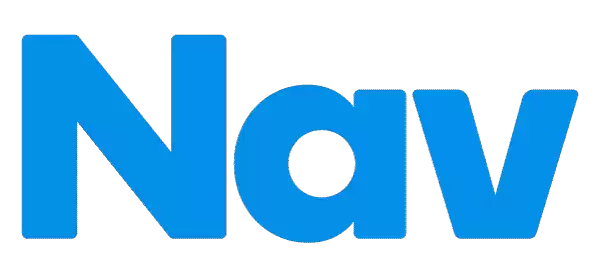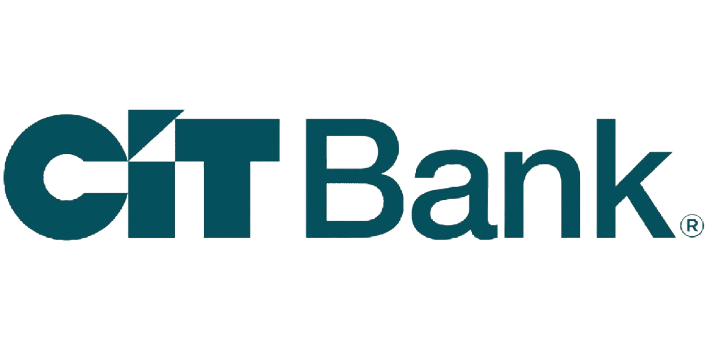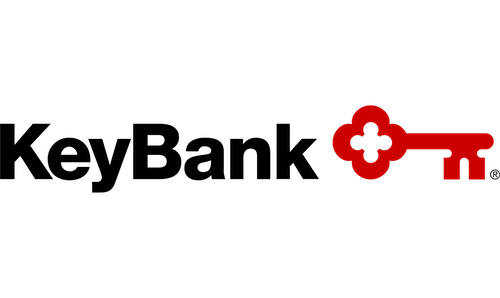“I want to learn how to start a business with no money. Is it possible?” This phrase is something you hear over and over again.
There are talented entrepreneurs with excellent ideas — but do not have deep pockets to start a business. The thing is, you don't always need a rich uncle or to have a bank account filled with cash to start a business.
It just might be that you lack creativity — because there are creative ways that you can finance your business.
If you already have a business idea — then you have already gotten through the most challenging part.
If you are still worried about how you can start a business with literally zero funds, here are a few ideas to help you along your way.
How to Start a Business When You Have Literally No Money
Wondering how to start a business with no money or is procrastination not helping you? Here are a few simple yet effective steps to get this resolved.
Considering that over 50% of the American workforce want to be self-employed, but aren’t, there seems to be a gap between the desire and the implementation.
Whether it’s lack of funding, no proper formulation of an idea, or any other reason they can come up with, it’s quite clear that procrastination seems to be the dream killer of the potential entrepreneur.
But this is not the end for those who wish to beat the proverbial 9-to-5, as there are a few simple yet effective steps to get this resolved.
I'm sharing how you can start a business with no money — so you can fuel your business goals. While it sounds impossible, it's really not.
|
4.7
|
4.0
|
|
Loan Amounts: $1,000 - $10 million
|
Loan Amounts: $5,000 - $125,000
|
1. Get To Work On A Plan
According to a study done by Dr. Gail Matthews from the Dominican University of California, those who write down their goals are 42% more likely to achieve them.
For a business, this goal list is known as a business plan and usually details what the entrepreneur would like to achieve with this business concern over the next 5 to 10 years.
There are a few things that need to be done before the business plan can be completed, such as market research or a full feasibility study. Part of the business plan is also the cash flow, which will give the entrepreneur an indication of whether the business is financially viable.
2. Start a Business Around What You Know
While it can be helpful to search for business ideas online, it's usually better to go with what you know. My current website, My Millennial Guide, began this way. I had a Finance degree and was working in a finance job, so I started a financial website. It's grown to what it was now, but it literally required little to no money to start-up and it now brings me over six-figures a year.
If I didn't have any experience in personal finance, it would have been hard since I live and breath it now as my job. Also, I don't have to rely on outside sources since I know everything about the niche. Sure, you can always consult experts in the field, but if you know your business already — even better.
3. Formulate A Personable Brand Strategy
For companies who want to appeal to the current consumer demographic which is largely made up of millennials, it’s important to build a brand they can relate to.
Entrepreneurs will need to focus on branding and brand strategy to satisfy these requirements.
Millennials want brands to be more personable and reflect values and ethics within the organization. It’s also important to the millennial that technology plays a big role in their communication with the brand, and that the brand is aware of its social media responses.
4. Tell Everyone That You Started Your Own Business
This is important and you shouldn't skip it for many reasons. When you're starting your own business venture, whatever it may be, people need to know. When they think of you, the first thing that should pop into their heads is your business.
When you think of Marc Cuban, do you think of a successful businessman? The same thing should apply to you. So tell your friends, family, and current and business contacts about what you have going on. You never know how it can help you in the future for referrals or networking purposes. Your friends and family members might also be talking to somebody and can be sharing your business information if it comes up. This can help increase the audience and scope of your business. An easy way to do this is by simply posting about it on your personal social media profiles, people will get the hint.
5. Crowdfunding
Have you considered raising funds for your project or business by using crowdfunding sites? Kickstarter exists to help bring creative projects to life. Crowdfunding sites like Kickstarter and Indiegogo provide you with an alternative yet fun way to raise money for your business. They exist to help bring creative projects to life. It doesn't matter what business idea it is either, a ton of people raise free money for films, music, art, theater, games, comics, design, photography, and more.
You only need to set a goal of how much money you hope to fundraise over a specific time then tell your friends and relatives to pledge money. Although there is no long-term ROI for people who support you, this has not stopped crowdfunding sites from being successful.
6. Secure an SBA Loan
Funding is a critical component to the success of a business, as up to 82% of businesses fail due to poor cash flow management or the lack of financial understanding within the business. Funding is critical to get the operation started and well-oiled until it exceeds break-even point and starts generating a decent income. Whether this means raising capital in a personal capacity through personal loans or equity in assets, the sale of an asset, or even apply for business funding.
It takes small steps to get that business off the ground, but what’s important is that those steps are taken however slow they may be. With the right strategy, a vision, and implementation, that business will be off the ground in no time.
Since banks may be reluctant to take risks with lending you money, you can turn to SBA programs. Even startups have a chance of getting SBA loans.
Here are the qualifications that you need for an SBA-backed loan:
- Determine if your business is small. Your business should match the government’s definition of a small business.
- Rejected from financial institutions. If you can obtain funds for yourself, you will not qualify for an SBA loan. This means your loan application must be turned down from financial institutions such as banks.
- Apply for a commercial loan. After finding out that you qualify, you can apply for a commercial loan from financial companies that process SBA loans because the Small Business Administration does not provide loans directly.
7. Compare your options
Comparing your options with small business loans is crucial because it ensures you find the best terms and rates that suit your business's unique needs. Different lenders offer various interest rates, repayment terms, and loan amounts, so shopping around can save you money and provide more favorable conditions. Additionally, some loans may have specific benefits or limitations, making it important to choose the one that aligns best with your business goals and financial situation. Here are top lenders to consider below, offering competitive rates and flexible terms.
8. Use a Credit Card
Using a personal credit card to fund your business is very risky. If you fall behind on your payments, your credit score will suffer. On the other hand, paying just enough at the end of the month might lead to debts that you might never eliminate.
If you use your credit card responsibly to get your business running you will be fine — just exercise caution in its use.
9. Raise Money from Friends and Relatives
The most common way to finance a startup is by asking your family and friends for money. However, you need to remember that asking your family and friends for money puts your relationships at risk. To avoid this, you should give them formal financial projections, which will reduce the likelihood of unpleasant surprises.
10. Avoid Unnecessary Expenses
When you are just starting out and have no money, it's important to find ways to dramatically lower your business expenses.
Consider outsourcing certain tasks, use a virtual phone line, monitor your staffing costs, go green, advertise only online versus print, go virtual, or buy gently used equipment instead of brand new. The point is that there are so many ways that you can find ways to save for your business even if you are just starting out.
11. Get a Small Business Loan
If you need a little extra cash to cover the bills, cover inventory, payroll needs, equipment financing, or a laundry list of other business needs, a small business loan could definitely help. As a new business owner, you can likely qualify to borrow between $5,000 to $50,000 and pay it back between 6 months and 5 years. If you end up getting a loan for your business, make sure to use the money wisely.
Want to know if it's right for you? If you are planning to take a business loan, you must know the pros and cons of taking small business loans:
| Advantages | Disadvantages |
| Multiple options: Business loans offer a lot of options for different types of borrowers with different needs. Business loans can be secured, unsecured, payday, SBA loans, and many other types. Also, business loans can be commercial and non-commercial. A borrower has a verity of choices when taking a business loan. | Lengthy application process: While applying for a business loan, you might face a lot of problems because of the application process. Borrowers might find the application process lengthy and complex at times. |
| Low-interest rates: Business loans generally offer lower interest rates. Though business loan interest rates vary from lender to lender, you will get lower interest rates usually if you have a better credit score. | You may not qualify: It can be difficult to qualify for a business loan. The common business loan requirements you'll find are credit score, age of your business, annual revenue, personal debt-to-credit ratio, net operating income, potential collateral or how you intend to use your funds. |
| Profits are yours: Lenders have no right to the profits earned from using their money. You have to make the repayments timely and maintain the terms and conditions, but the lenders cannot claim any percentage of your profits that you have earned from the financing of the business loan. | Risky: Taking a business loan is sometimes risky. You may lose your assets if you fail to repay the loans. In fact, you may lose your business and even file bankruptcy in cases of failure of the repayment. |
| Tax-deductible: You can typically deduct interest paid on business loans used solely for business purposes. | Collateral may be required: Business loans generally require collateral as a security. And you may lose the asset if you can't make repayments. It can go as far as losing your business, home, assets and leaving you to file for bankruptcy depending on the amount of the business loan. |
To chalk it up, if your business needs a little extra cash to cover the bills, cover inventory, payroll needs, equipment financing, or a laundry list of other business needs, a small business loan could definitely help. You can see some of the top business loan lenders here.
|
4.7
|
4.0
|
|
Loan Amounts: $1,000 - $10 million
|
Loan Amounts: $5,000 - $125,000
|
12. Accounts Receivables
Accounts receivable refers to the outstanding invoices a company has or the money clients owe the company. Accounts receivables are the lifeblood of a small business's cash flow. Make sure that your receivables policy is set for net-15 and net-30 term. This way, you can get paid each month and you won't have to worry about getting the bills paid.
13. Build Up Your Companies Equity
Your business' equity is one of the most important things in your startup of a new business. Make sure that every single business decision you make is for a reason. If a decision didn't have a purpose to enhance the business, why do it?
Eventually, if you plan to sell your business, the wiser choices you make, the better payout at the end of the road.
How to Start Your Own Side Business While Working Another Job
Starting a small business while you are employed can be a challenge. You will face challenges when it comes to time, conflict of interest with your current job, validation of the product, and more.
However, all these challenges can be solved if you prepare well enough to run your new personal project.
Issues like capital can be solved by borrowing from online lending services as well as traditional financial institutions. Here is how to start a small business while working 9-5.
1. Start Properly and Legally
First, look for your employment documents and begin reading and understanding them. These documents could include NDA, assignment agreement, employment contract, and others. This is particularly significant if you are starting a business that is in the same industry as your current employer. You need to confirm if you had signed a non-compete form when you were employed. If you are not sure if your business will be a conflict of interest, consult a lawyer.
If your business is different from what you are doing at your current job, then there is no need to be concerned about starting your side business. You can now start your business legally either as an LLC, sole proprietorship, or S-Corp. If you're freelancing to make money on the side or running a side business on your own, you may be considered a sole proprietor already.
2. Manage Your Time
Time is the most significant resource you have. When you are spending over 40 hours per week at your current job, it leaves limited time for you to work on your small business.
Plan a weekly schedule and determine the commitments that you can avoid to create more time. Set goals for your business, personal life, and the day job and be sure to follow them. Make sure the goals are small and realistic.
3. Test the Product or Service
In case you are selling a product, make sure you do proper market research validating it. Validation can be an in-depth process that depends on the market. It helps you determine if people will purchase your products and the reason for that.
You need to test the price point, market, and receive feedback for implementation. If you provide a service, begin by freelancing. Begin procuring gigs to create a customer base and foundation for your small business. Find ways to be efficient at your work.
4. Be Lean
The moment your small business begins making a profit, don’t spend it lavishly. Being lean will help build your cash reserves and let you achieve your ultimate goals faster. While you might want to hire costly accountants to balance the books for you, using accounting software can help you lower your business expenses.
Payment processors such as PayPal and Revel are simple to use and provide cheap, powerful services for a small business. In case you need accounting expertise when it comes to filing taxes and other issues, pay for one consultation and ensure everything is professionally handled.
5. Outsource
After your business starts to grow, you will need assistance. You will need people for graphic design, customer service, social media, and other areas of your business since you can only do so much.
Hence, instead of employing expensive staff, hire freelancers. Multiple sites and services offer experts in various fields. Sites such as Upwork and Fiverr will connect you to skilled and reliable freelancers.
Bottom Line
There is a solution to any problem, including balancing your day job and your small business. With time, your business will grow, and you will make enough money for you to quit and run your company full-time.














